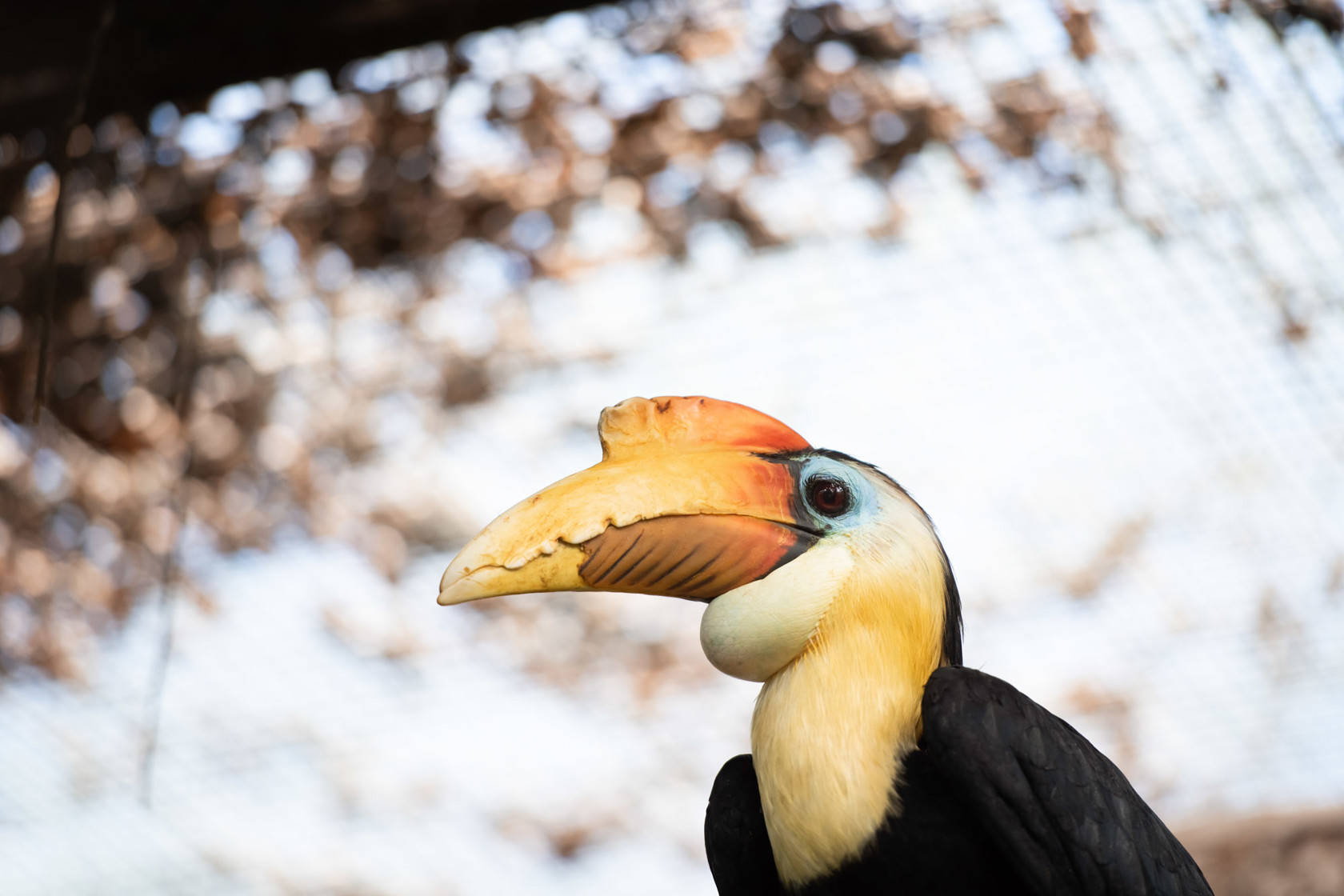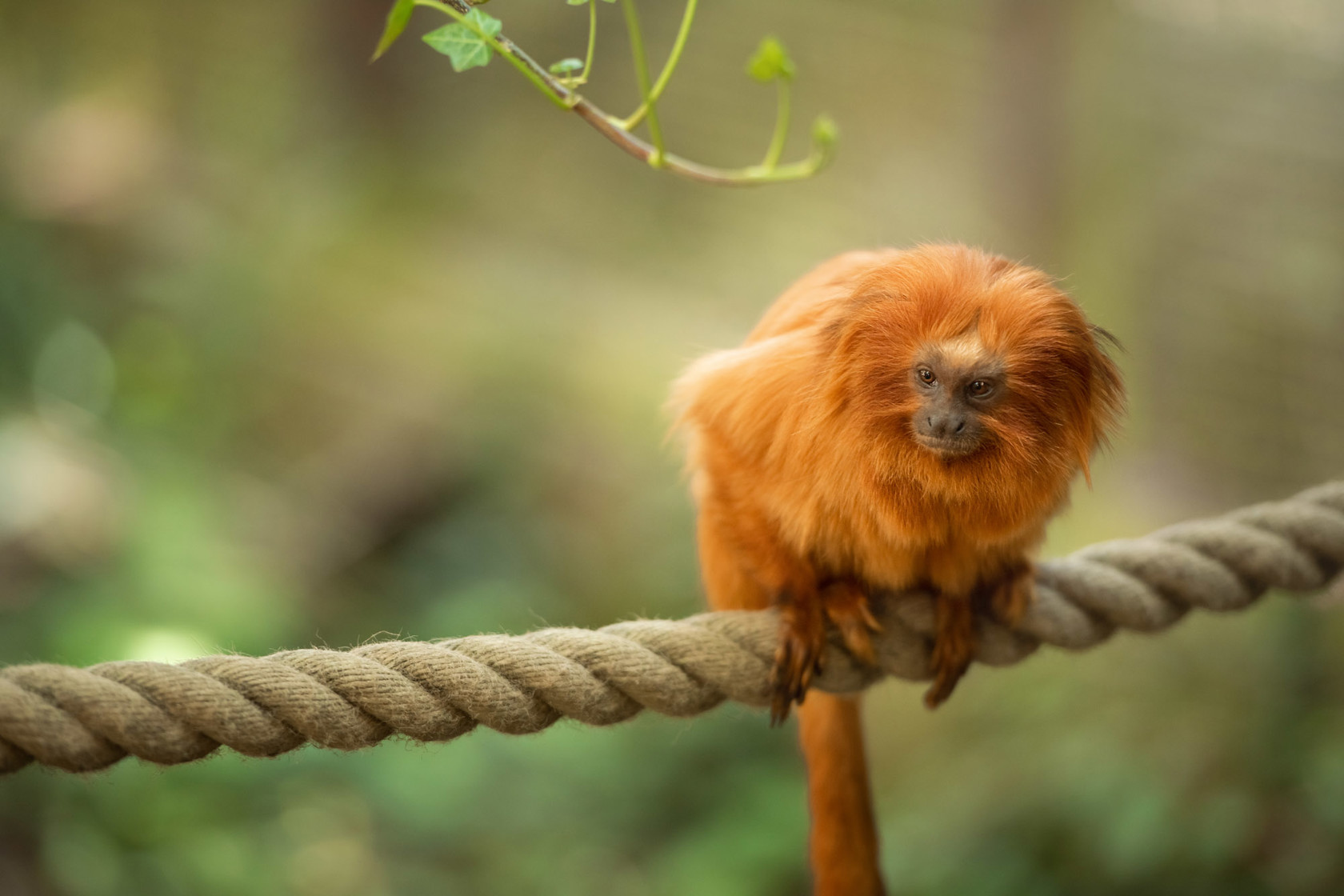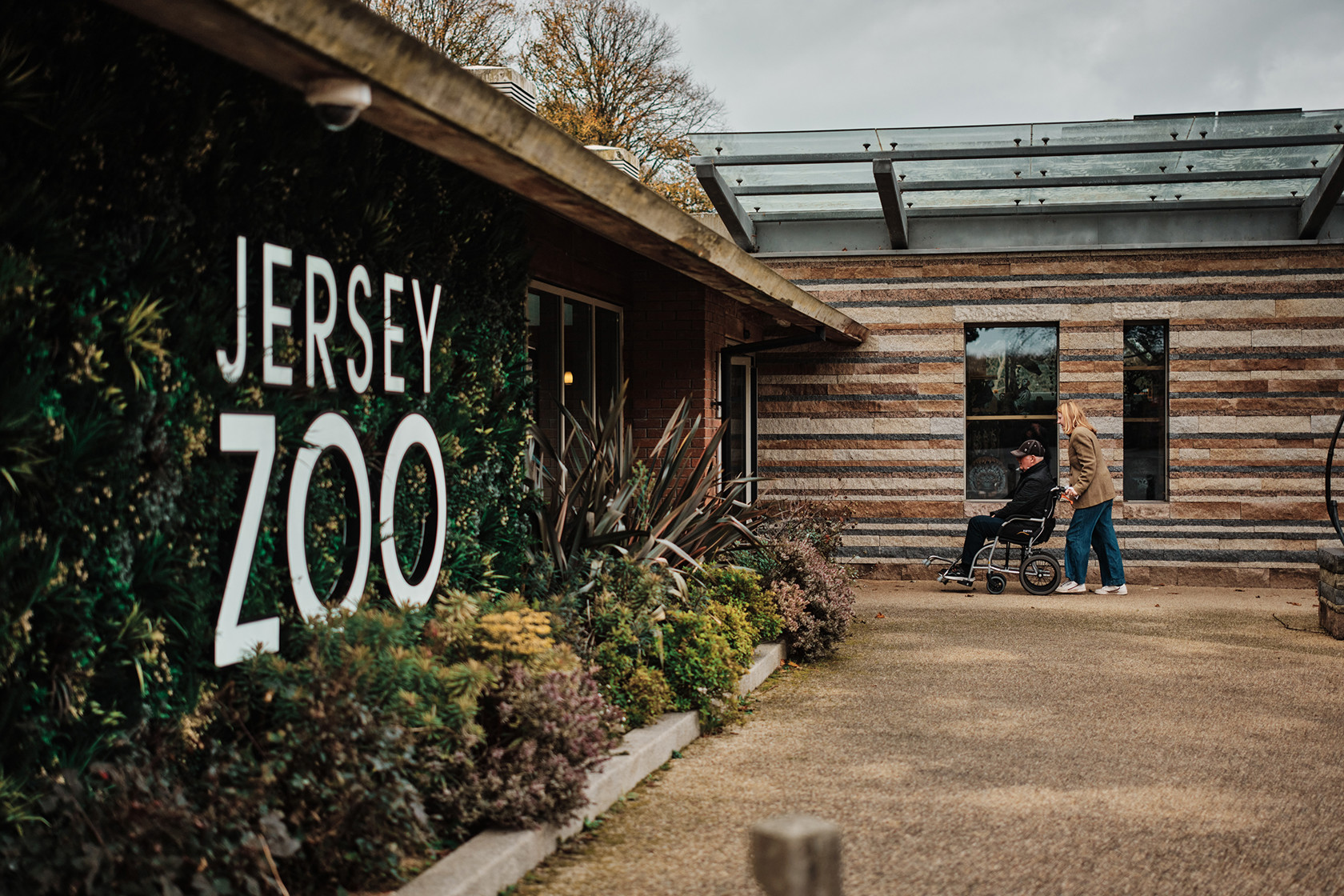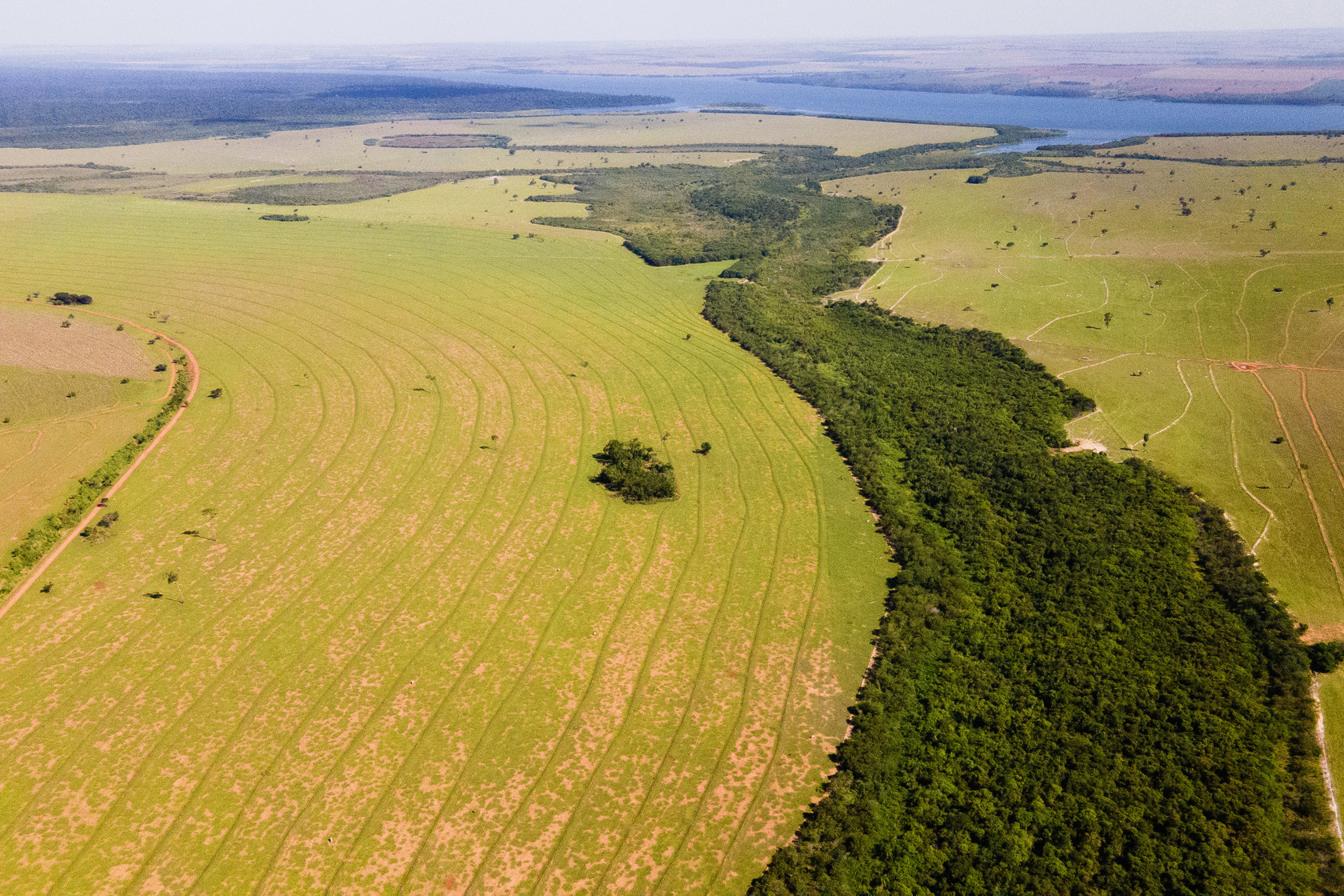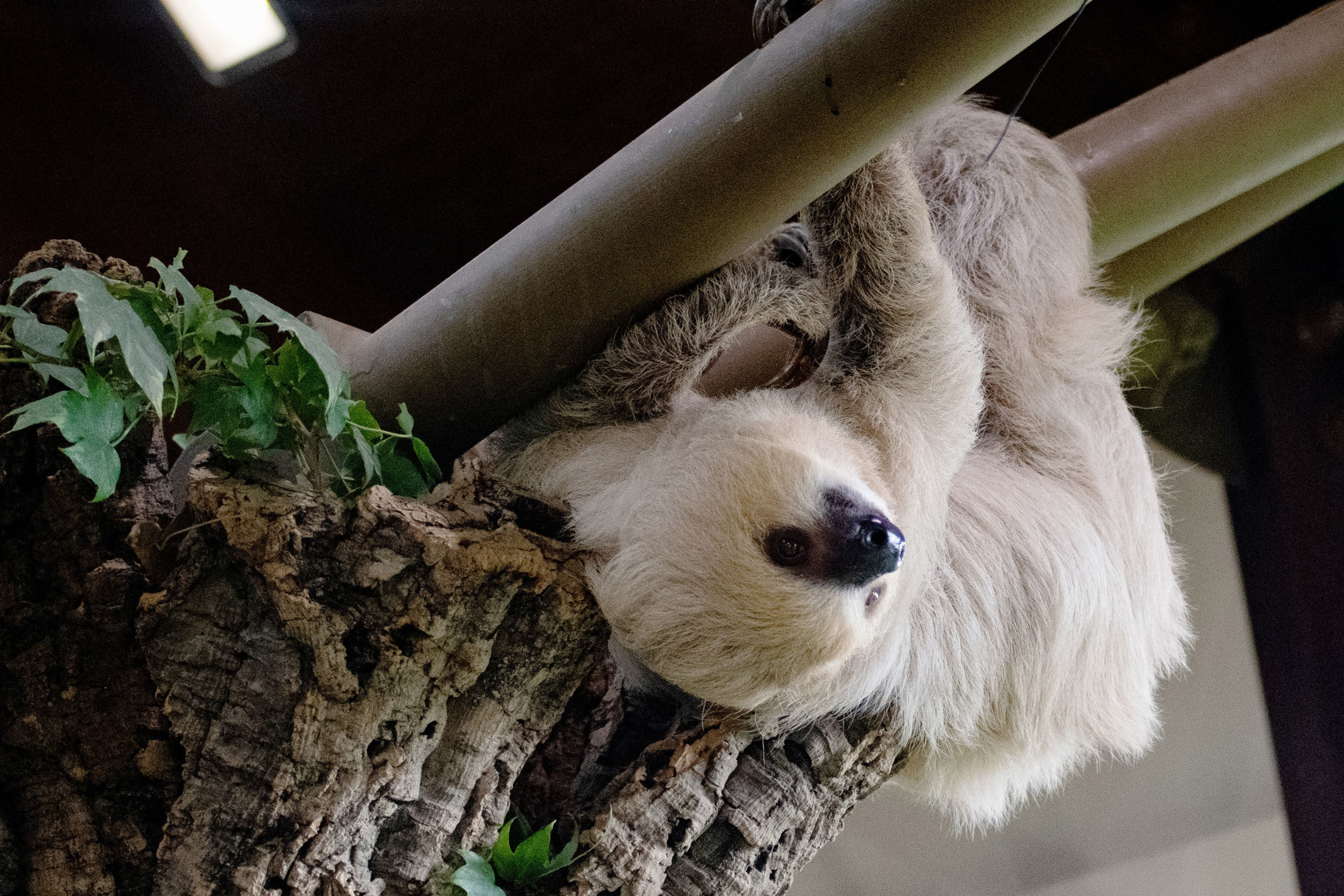A bat on the brink; joining forces to save the world’s most endangered fruit bat
New research indicates that the Livingstone’s fruit bat, Pteropus livingstonii, endemic to the Comoro Islands in the Western Indian Ocean, is likely to be the most endangered fruit bat in the world. This news comes after researchers from Durrell Wildlife Conservation Trust, Bristol Zoological Society and the Comorian NGO Dahari joined forces to complete the most comprehensive survey of this species to date.
The Livingstone’s fruit bat is only found on Anjouan and Mohéli, two of the four main islands forming the Comoros archipelago located off the south-east coast of Africa. These islands suffer from one of the fastest deforestation rates in the world, with just 60km2 of undisturbed old-growth forest now remaining across the two islands. As an endemic island specialist, the Livingstone’s fruit bat is particularly vulnerable to habitat loss and plays a key role in the seed dispersal of endemic plants and trees, important for the health of the wider ecosystem.
The main causes of this forest loss are the cutting of old-growth trees for construction wood and agricultural expansion; a situation worsened by farming techniques that are poorly-adapted to farming steep slopes where soils are easily eroded and lose their nutrients. As farmers move up the slopes to create new fields, they open the way for large, old trees to be felled for use in construction. This coupled with high population growth rates, poverty, and a lack of economic alternatives creates a perpetual cycle of forest clearance. This widespread and long-term forest loss means that the Livingstone’s fruit bat population now numbers as few as 1,200 individuals and is only found at 21 roost sites, all but five of which are at risk from tree-cutting and landslides. These findings have resulted in the species being up-listed to Critically Endangered on the IUCN Red List.
Dr Richard Young, Head of Conservation Science at Durrell and lead scientist on the survey said: “The Livingstone’s fruit bat is in desperate trouble. Its forest home is dwindling fast and is highly vulnerable to further damage through extreme weather and agricultural expansion. Action is urgently needed to save this precious and ecologically-valuable fruit bat, which is so important to the health of the Comorian forests.”
However, all hope is not lost. Local NGO Dahari has developed a multidisciplinary and innovative approach to improve local livelihoods and conserve the Livingstone’s fruit bat whilst tackling the root causes of deforestation. Local people are also suffering from the impacts of deforestation with agricultural yields in decline and river flows drying up.
Hugh Doulton, Technical Director for Dahari said: “We have trained over 3000 farmers to improve agricultural yields in lowland areas, have empowered local community groups to reforest over 100 ha of water catchments, and are just finishing the pilot phase of a Payments for Ecosystem Services-based scheme to protect Livingstone roost sites’.
In return for agricultural support in their lowland fields, farmers agree to protect the roost trees in perpetuity and adopt bat-friendly agroforestry practices. Conservation agreements have already been signed to protect two roost sites, with expansion planned in 2017. Those who restore natural forest in the area gain direct cash benefits generated from Dahari’s ecotourism venture until sustainable timber offtake is possible.
Whilst this new research highlights the precarious state of this species and reminds us that this truly is a bat on the brink, the collaboration between Dahari, local communities, the Comorian Authorities, Durrell Wildlife Conservation Trust and Bristol Zoological Society provides hope for the conservation of this species and its survival.
To find out how you can help, please contact lucy.archer@durrell.org.
The Livingstone’s fruit bat is only found on Anjouan and Mohéli, two of the four main islands forming the Comoros archipelago located off the south-east coast of Africa. These islands suffer from one of the fastest deforestation rates in the world, with just 60km2 of undisturbed old-growth forest now remaining across the two islands. As an endemic island specialist, the Livingstone’s fruit bat is particularly vulnerable to habitat loss and plays a key role in the seed dispersal of endemic plants and trees, important for the health of the wider ecosystem.
The main causes of this forest loss are the cutting of old-growth trees for construction wood and agricultural expansion; a situation worsened by farming techniques that are poorly-adapted to farming steep slopes where soils are easily eroded and lose their nutrients. As farmers move up the slopes to create new fields, they open the way for large, old trees to be felled for use in construction. This coupled with high population growth rates, poverty, and a lack of economic alternatives creates a perpetual cycle of forest clearance. This widespread and long-term forest loss means that the Livingstone’s fruit bat population now numbers as few as 1,200 individuals and is only found at 21 roost sites, all but five of which are at risk from tree-cutting and landslides. These findings have resulted in the species being up-listed to Critically Endangered on the IUCN Red List.
Dr Richard Young, Head of Conservation Science at Durrell and lead scientist on the survey said: “The Livingstone’s fruit bat is in desperate trouble. Its forest home is dwindling fast and is highly vulnerable to further damage through extreme weather and agricultural expansion. Action is urgently needed to save this precious and ecologically-valuable fruit bat, which is so important to the health of the Comorian forests.”
However, all hope is not lost. Local NGO Dahari has developed a multidisciplinary and innovative approach to improve local livelihoods and conserve the Livingstone’s fruit bat whilst tackling the root causes of deforestation. Local people are also suffering from the impacts of deforestation with agricultural yields in decline and river flows drying up.
Hugh Doulton, Technical Director for Dahari said: “We have trained over 3000 farmers to improve agricultural yields in lowland areas, have empowered local community groups to reforest over 100 ha of water catchments, and are just finishing the pilot phase of a Payments for Ecosystem Services-based scheme to protect Livingstone roost sites’.
In return for agricultural support in their lowland fields, farmers agree to protect the roost trees in perpetuity and adopt bat-friendly agroforestry practices. Conservation agreements have already been signed to protect two roost sites, with expansion planned in 2017. Those who restore natural forest in the area gain direct cash benefits generated from Dahari’s ecotourism venture until sustainable timber offtake is possible.
Whilst this new research highlights the precarious state of this species and reminds us that this truly is a bat on the brink, the collaboration between Dahari, local communities, the Comorian Authorities, Durrell Wildlife Conservation Trust and Bristol Zoological Society provides hope for the conservation of this species and its survival.
To find out how you can help, please contact lucy.archer@durrell.org.

